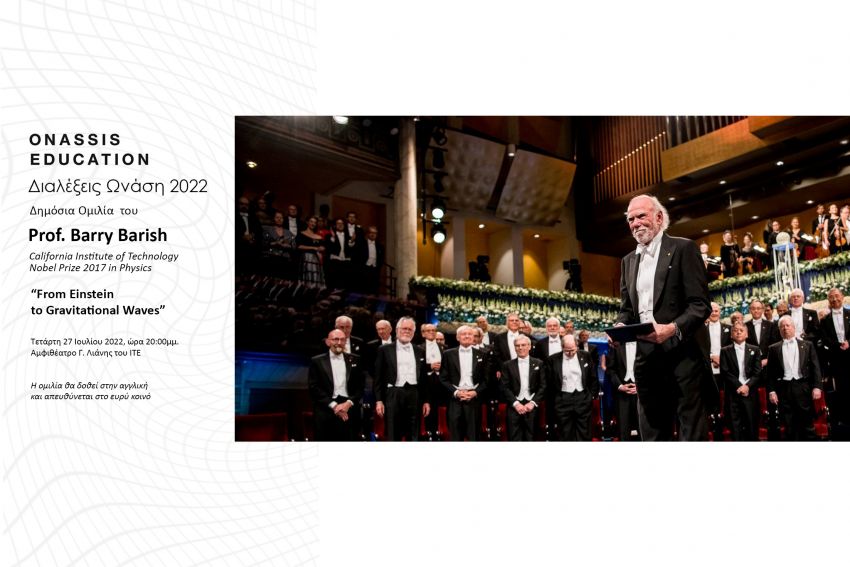Events

Onassis Lectures 2022
This year’s Onassis lectures were dedicated to a broad review of the new field “Gravitational-wave science” and its prospects for the future. The individual presentations contained theoretical and experimental reviews of the field, with particular emphasis on future plans, challenges and opportunities.
The 2017 Nobel Prize winner in Physics, Prof. Barry Barish (Caltech University, USA) was the Keynote Speaker of this year’s Onassis Lectures. His public talk entitled “From Einstein to Gravitational Waves” was given on Wednesday, 27 July at 20.00, in G. Lianis Auditorium at FORTH.
The discovery of gravitational waves was reported from the Laser Interferometer Gravitational-wave Observatory (LIGO) one-hundred years after they had been predicted by Albert Einstein in 1916. The first detection was achieved by the simultaneous observation of the merger of binary black holes by two widely separated suspended-mass interferometers that had unprecedented sensitivity to the distortions of space-time of less than 1 part in 10-21. A third interferometer, Virgo, joined the two LIGO detectors in 2017, making triangulation possible to accurately determine the sky location of observed gravitational wave events. Then, the simultaneous observation of a binary neutron star merger opened the exciting new observational field of multi-messenger astronomy.
Nearly 100 observations of gravitational wave events have now been reported, and with the continued improvement of the interferometer sensitivities, a new and exciting field of physics and astronomy has emerged. includes sensitive tests of the theory of general relativity, astrophysics observations of gravitational waves, as well as the exciting new field of multi- messenger astronomy. Prospects for the future are very promising. The LIGO and Virgo instruments are being incrementally improved, a new generation of even more sensitive ground based interferometers are planned, as well as complementary initiatives in space, and from accurate pulsar timing initiatives.







